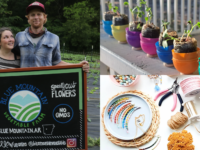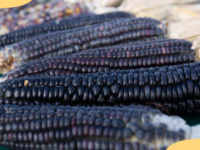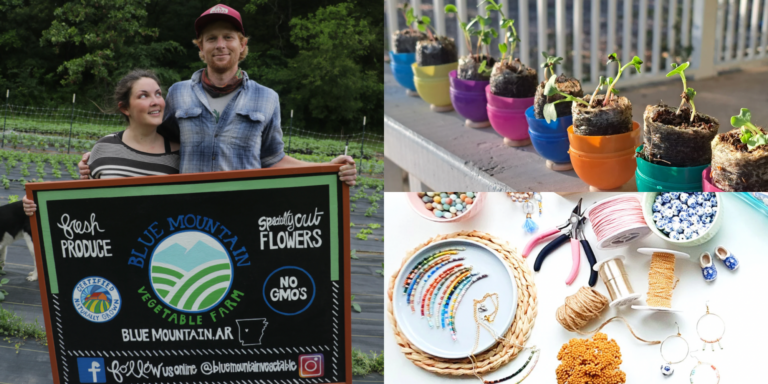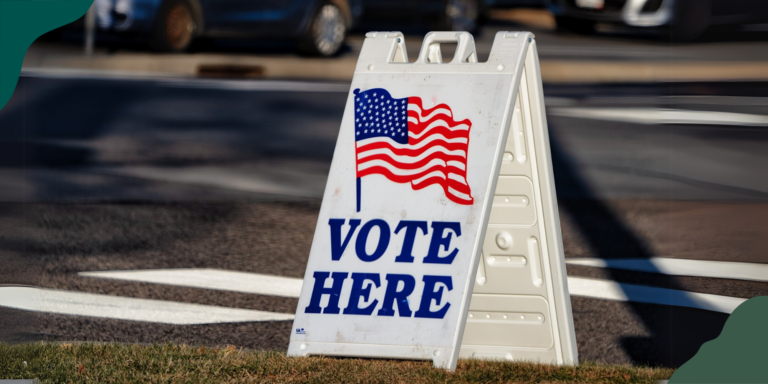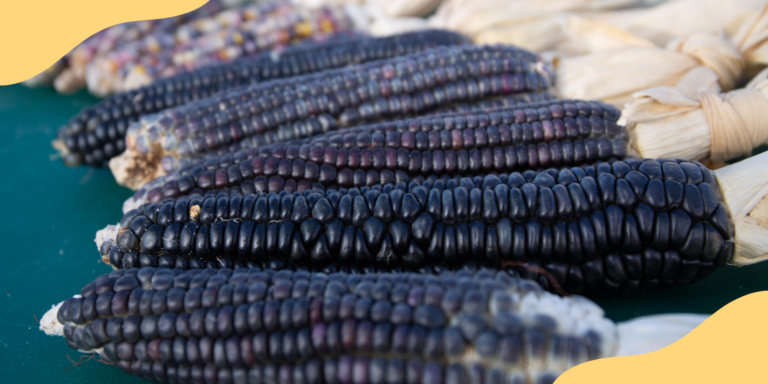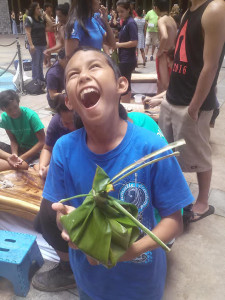 As we enter springtime, we must take time to reap what we sow and reflect on all the successes and challenges we have experienced during our time of service. During my two years of service with FoodCorps nothing has made me prouder—and rekindled my inner flame for a more just world—than taking my students to the Hawaii State Capitol to celebrate their culture and empower themselves through food.
As we enter springtime, we must take time to reap what we sow and reflect on all the successes and challenges we have experienced during our time of service. During my two years of service with FoodCorps nothing has made me prouder—and rekindled my inner flame for a more just world—than taking my students to the Hawaii State Capitol to celebrate their culture and empower themselves through food.
During the month of January, students from Kamaile Academy Public Charter School, my service site, went on opening day of the legislative session to the State Capitol to ku’i (pounding kalo to make poi, a traditional food staple). They were joined by students and community members from all over O’ahu as well as neighboring islands. They cleaned, pounded and ate together while talking about the importance of traditional food and the culture and spirituality that surrounds it.
I was privileged to witness first-hand how these types of events create open spaces that facilitate the empowerment of our students. They realize that within themselves they have the power to create the change their seeking. As seventh grader Devina shared,
“Being from Waianae and having the opportunity to go means a lot. People think Waianae is nothing and that if we go to these kind of stuff we wouldn’t behave; but no, we went and we respectfully represented our community [Waianae]. I was there to learn more about the Hawaiian culture.”
Alohalani also resonated with her fellow students.
“I enjoyed everything that happened. From us (Kamaile Academy) in Waianae to come all the way to town and join was pretty cheery. Pounding kalo for me, is like feeling, how back before our island got overthrown we made our own food. Nowadays there is all this junk food which is making us [unhealthy], is better making our own food rather than going to fast foods. Us coming from Waianae, we don’t really do much Hawaiian type of things, like pounding, learning and dancing. Learning about my culture is a big thing since a lot of people don’t really talk about it. Going there was a huge experience for me; I love to do more of those things. I enjoyed it, loved to do it again, it was one cheery day.”
Food justice and food sovereignty are issues that I deeply care for. I believe it’s crucial for my students to have a healthy relationship with food before they are able to adequately learn in our current education system. For me, the highlight of this trip was seeing my students connect with their own cultural food and make the connection between food and identity. I couldn’t put it better than my ninth grade student, and new (s)hero, Alia-Marie,
“I come from the island of Molokai and there I have lived the Hawaiian way. I grew farming my own food, raised animals, hunted and fished. I have also learned how to plant, harvest and clean kalo. I grew up in the live style that many kupuna (elders) lived. One of my highlights was getting to practice ancient traditions, like honi (greeting) and cleaning kalo. Our flags will rise again and we will show the world that we are still strong in heart, mind and spirit.”
I joined FoodCorps thinking that if I can help connect at least one student with their land and their culture, and therefore help them create a sense of place and urgency for action, I will feel like I have done a small part in shifting our attitudes towards food. In the words of scholar Winona LaDuke,
“Food sovereignty is an affirmation of who we are as indigenous peoples and a way, one of the most surefooted ways, to restore our relationship with the world around us.”
It is up to all of us, students, teachers and community members, to take back the food system, to introduce spirituality in our eating habits and most importantly, to be the agents of change that this world needs.
